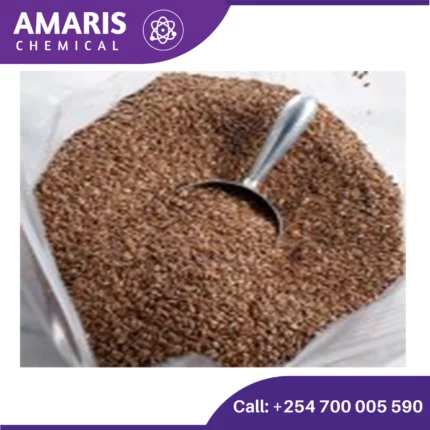
Flax
KSh8,500.00 Original price was: KSh8,500.00.KSh8,400.00Current price is: KSh8,400.00.
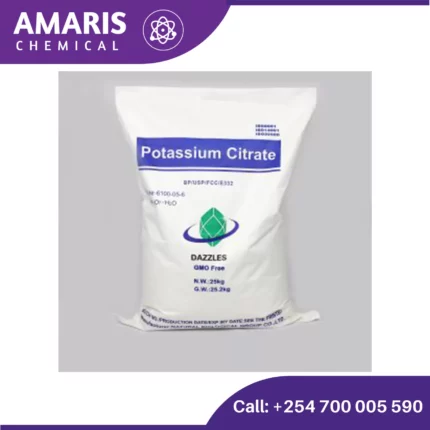
Potassium Citrate
KSh0.01
Fumaric Acid
KSh0.01
Fumaric acid is a naturally occurring organic compound with the chemical formula C₄H₄O₄. It is a dicarboxylic acid that plays a role in the citric acid cycle (Krebs cycle) in cellular metabolism. Fumaric acid is a white crystalline substance with a slightly acidic taste.
Uses:
- Food and Beverage Industry: It’s used as a food additive (E297) to enhance flavor and preserve food, especially in the production of beverages, fruit juices, and candies.
- Pharmaceuticals: It is used in the treatment of certain skin conditions like psoriasis, and as a precursor in the synthesis of certain drugs.
- Industrial Applications: Fumaric acid is used in the production of resins, plastics, and as a cross-linking agent in the manufacturing of unsaturated polyester resins.
- Cosmetics: It is sometimes included in skincare products for its mild exfoliating and skin-conditioning properties.
SKU:
ACS43149CHEM0
Category: Acidulants
Description
Fumaric acid is a naturally occurring organic compound with the chemical formula C₄H₄O₄. It is a dicarboxylic acid that plays a role in the citric acid cycle (Krebs cycle) in cellular metabolism. Fumaric acid is a white crystalline substance with a slightly acidic taste.
Uses:
- Food and Beverage Industry: It’s used as a food additive (E297) to enhance flavor and preserve food, especially in the production of beverages, fruit juices, and candies.
- Pharmaceuticals: It is used in the treatment of certain skin conditions like psoriasis, and as a precursor in the synthesis of certain drugs.
- Industrial Applications: Fumaric acid is used in the production of resins, plastics, and as a cross-linking agent in the manufacturing of unsaturated polyester resins.
- Cosmetics: It is sometimes included in skincare products for its mild exfoliating and skin-conditioning properties.
Reviews (0)
Be the first to review “Fumaric Acid” Cancel reply
Shipping & Delivery
Related products
AcetateSodium 500gm
Acidulants, Analytical Reagents, Excipients, Microbiology and Cell Culture Reagents, PH Adjusters, Preservatives
Sodium acetate is a compound with the chemical formula CH3COONa. It is often found as the trihydrate form, meaning it has three water molecules attached to the acetate ion. This compound is commonly used in various industries, including food production, where it serves as a preservative or acidity regulator. In chemistry, it's used in buffers and sometimes as a reagent. Sodium acetate is also utilized in heating pads for its ability to undergo a process called crystallization that releases heat when needed.
Ammonium bicarbonate 25kg
Ammonium bicarbonate is a white, crystalline compound with the chemical formula NH4HCO3. It is a type of inorganic salt that is commonly used in the food industry as a leavening agent for baking, as well as in the production of ceramics, dyes, and other chemicals. When heated, ammonium bicarbonate decomposes into ammonia, carbon dioxide, and water vapor, which causes dough to rise and become light and fluffy. It is also known as hartshorn or baker's ammonia.
Disodium Hydrogen phosphate dihydrate
Disodium hydrogen phosphate dihydrate, also known as disodium phosphate dihydrate or Na2HPO4·2H2O, is a chemical compound with the formula Na2HPO4·2H2O. It is a crystalline solid that consists of two sodium cations (Na+) and one dihydrogen phosphate anion (HPO42-) combined with two water molecules (H2O).
Disodium hydrogen phosphate dihydrate is commonly used as a food additive, buffering agent, emulsifier, and pH regulator in various industries. It has a wide range of applications, including in the production of beverages, processed foods, and pharmaceuticals. Additionally, it is utilized in laboratory settings for various chemical and biological experiments.
The compound is highly soluble in water, which contributes to its effectiveness as a pH buffer. It can act as both a weak acid and a weak base, making it useful in maintaining a stable pH level in solutions. Its versatile properties and easy availability make disodium hydrogen phosphate dihydrate a commonly employed chemical in numerous applications.
Magnesium Carbonate
Phosphoric acid Technical Grade 30kg
Phosphoric acid is a clear, colorless, and odorless mineral acid with the chemical formula H3PO4. It is a triprotic acid, which means that it can donate three protons (hydrogen ions) per molecule when dissolved in water. Phosphoric acid is commonly used in the production of fertilizers, detergents, and food additives, as well as in various industrial applications, such as rust removal and metal surface treatment. It is also used in the production of soft drinks, where it gives a tart flavor and acts as a preservative.
Sodium Carbonate Anhydrous 500gm
Acidulants, Analytical Reagents, Builders, Finishing Agents, PH Adjusters, Soil Conditioners, Solvents
Sodium carbonate soda ash light is a refined form of sodium carbonate, which is a white, crystalline compound with the chemical formula Na2CO3. It is called "light" because it has a lower density compared to other forms of sodium carbonate.
Soda ash light is primarily used in industrial and commercial applications, including glass manufacturing, water treatment, detergent production, and as a pH regulator in various chemical processes. It is known for its alkaline properties and its ability to effectively neutralize acidic substances.
Tartaric Acid 500gm
Tartaric acid is a naturally occurring organic acid found in many plants, particularly in grapes, bananas, and tamarinds. It is well-known for its significant role in the wine industry, where it helps stabilize the wine and contributes to its taste. Here are some key aspects and uses of tartaric acid:
Chemical Properties
- Chemical Formula: C4_44H6_66O6_66
- Molecular Weight: 150.09 g/mol
- Appearance: White crystalline powder
- Solubility: Soluble in water and alcohol
Natural Occurrence
Tartaric acid is widely found in nature, predominantly in fruits like grapes, apricots, and apples. The potassium salt of tartaric acid, known as potassium bitartrate or cream of tartar, is a byproduct of winemaking.Industrial Production
Commercially, tartaric acid is often produced as a byproduct of wine production. The process involves:- Extraction: The sediment left in wine barrels, known as "lees," is treated to extract potassium bitartrate.
- Purification: The crude potassium bitartrate is then purified and converted to tartaric acid.

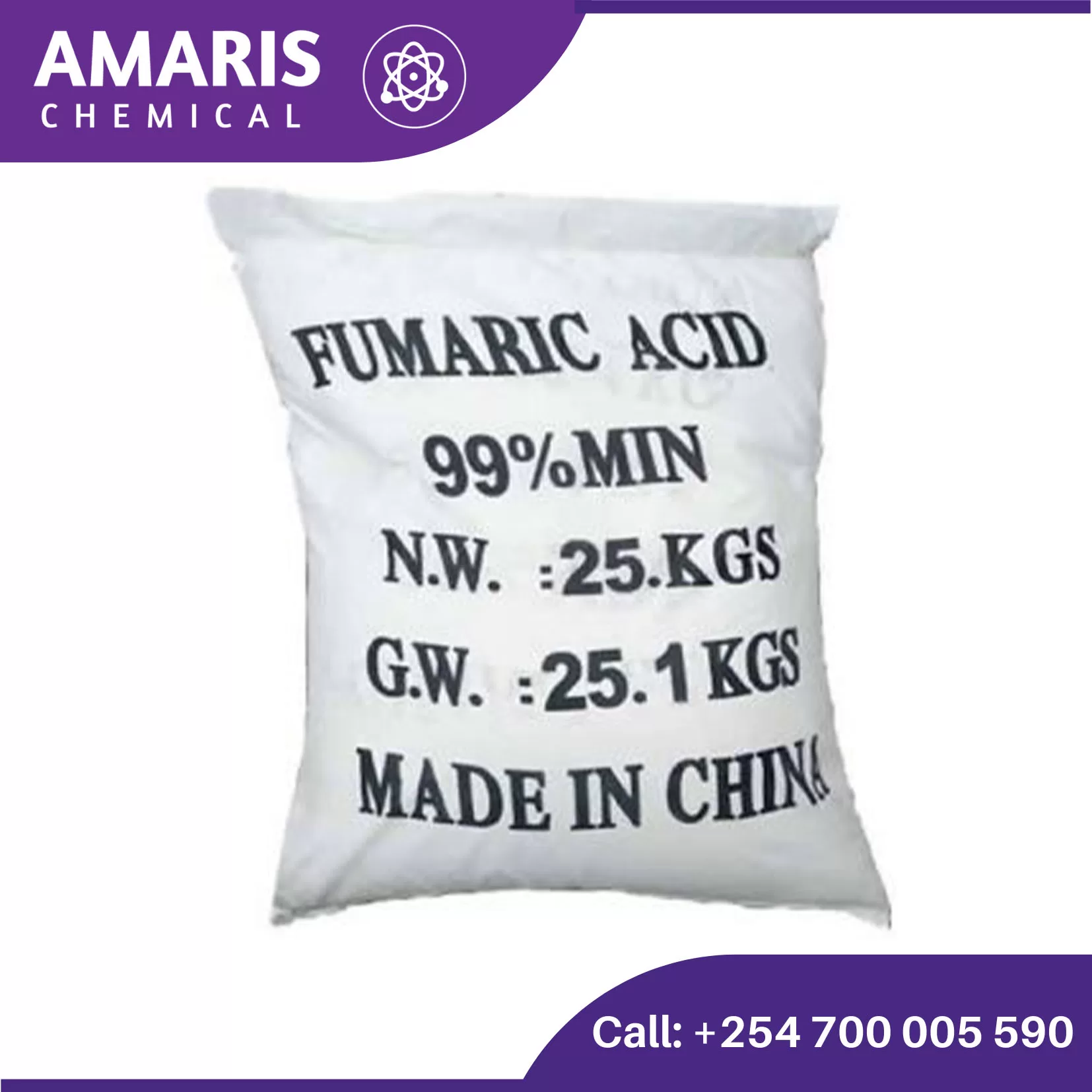
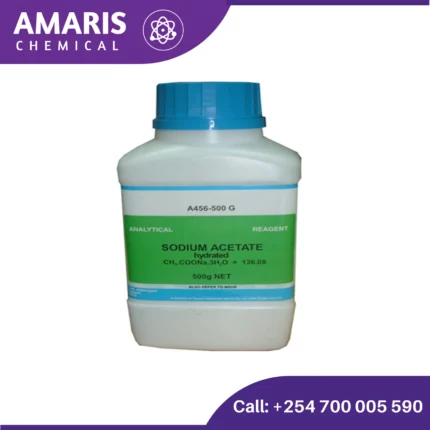
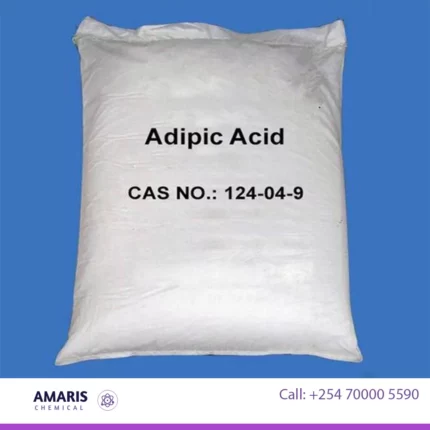
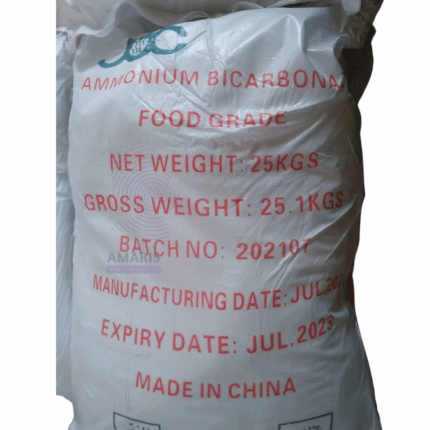
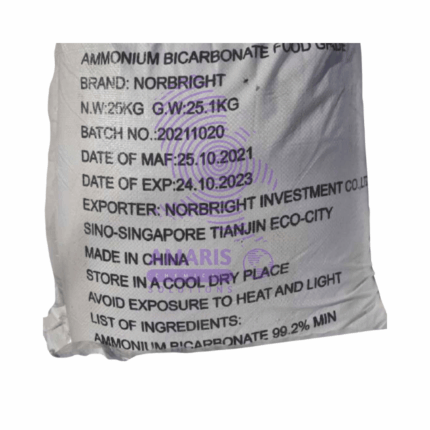
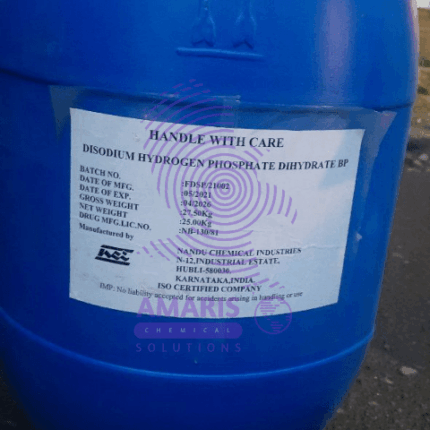
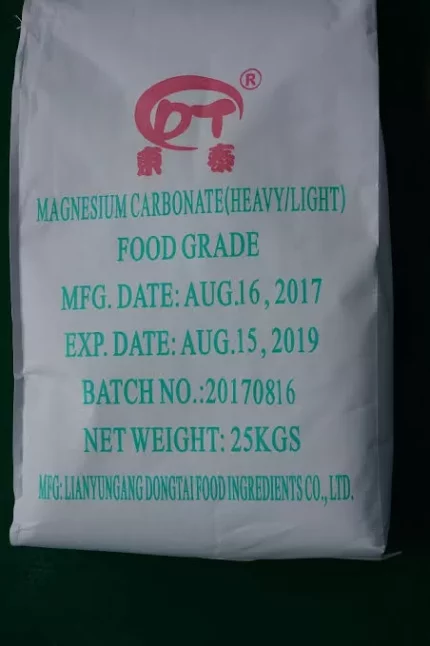
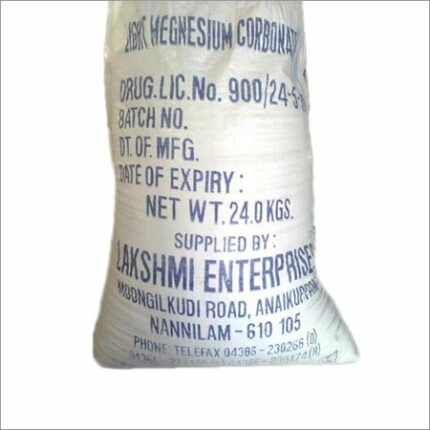

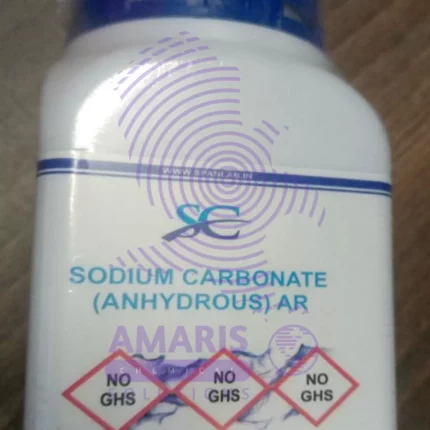
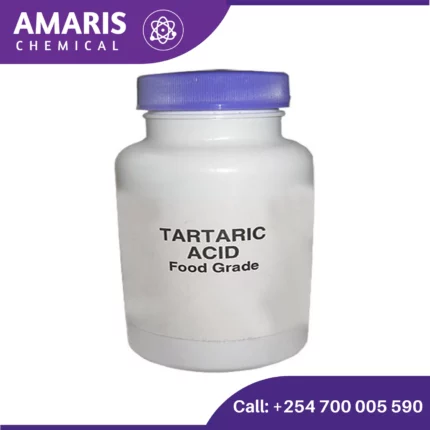
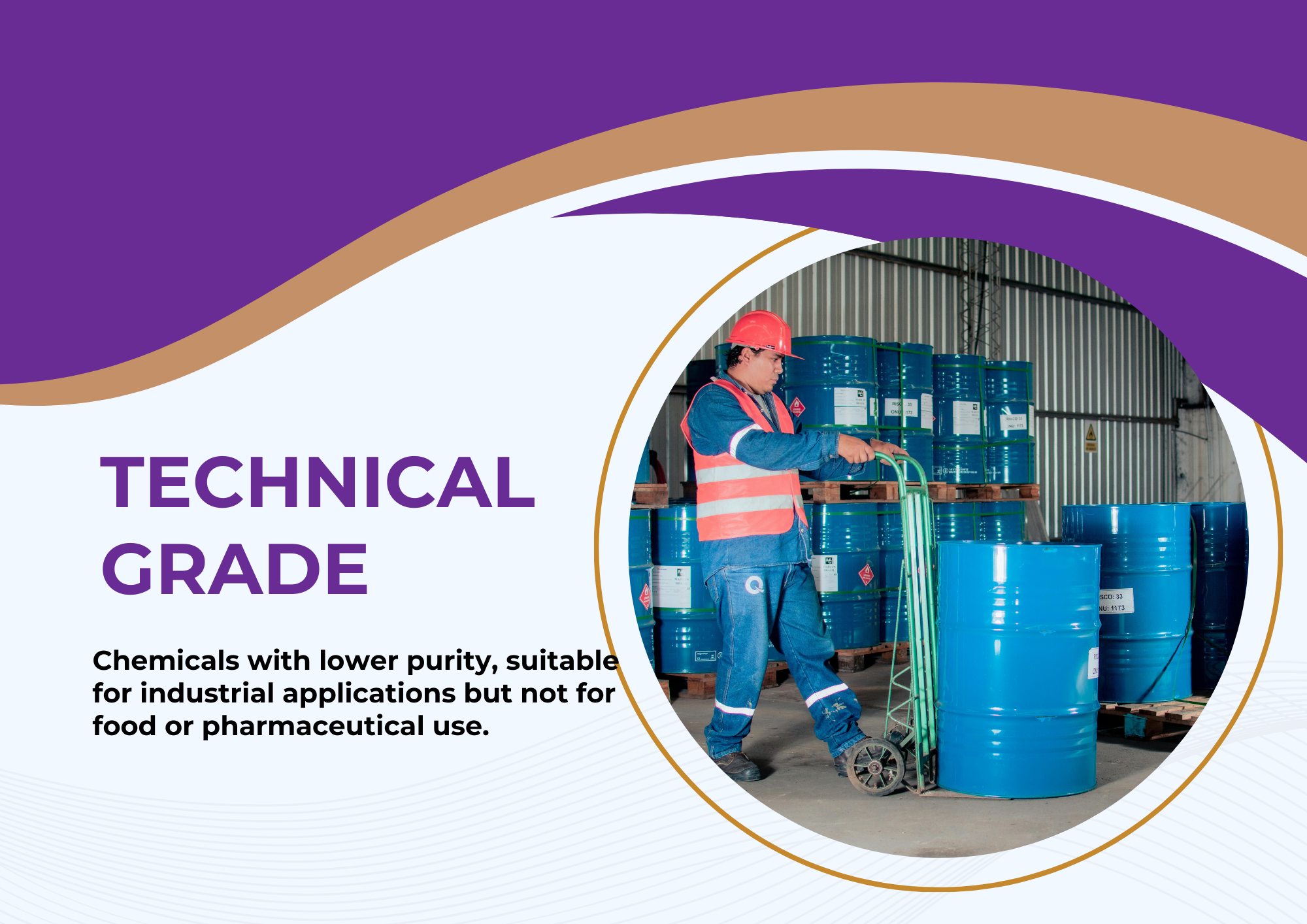



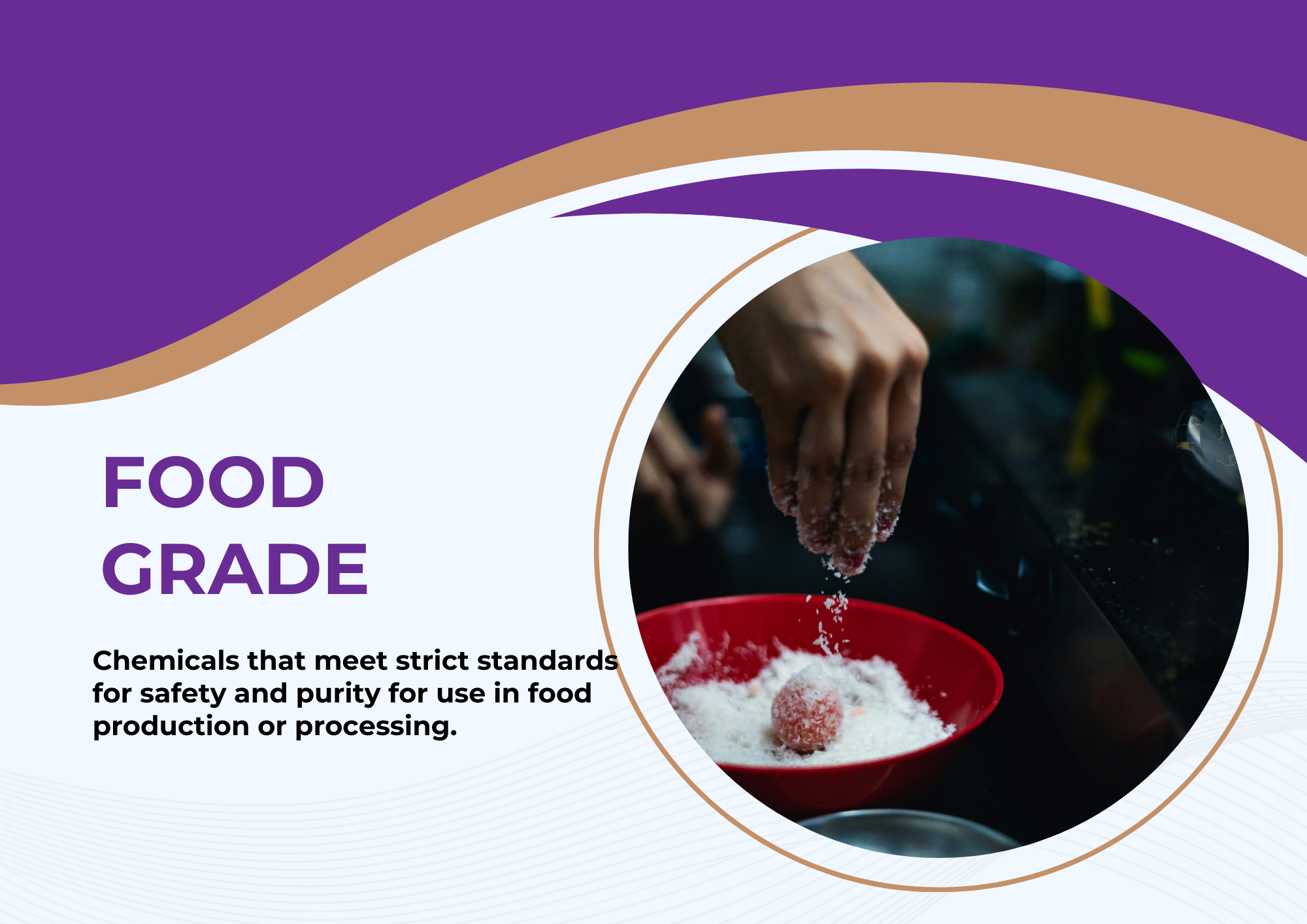


Reviews
There are no reviews yet.